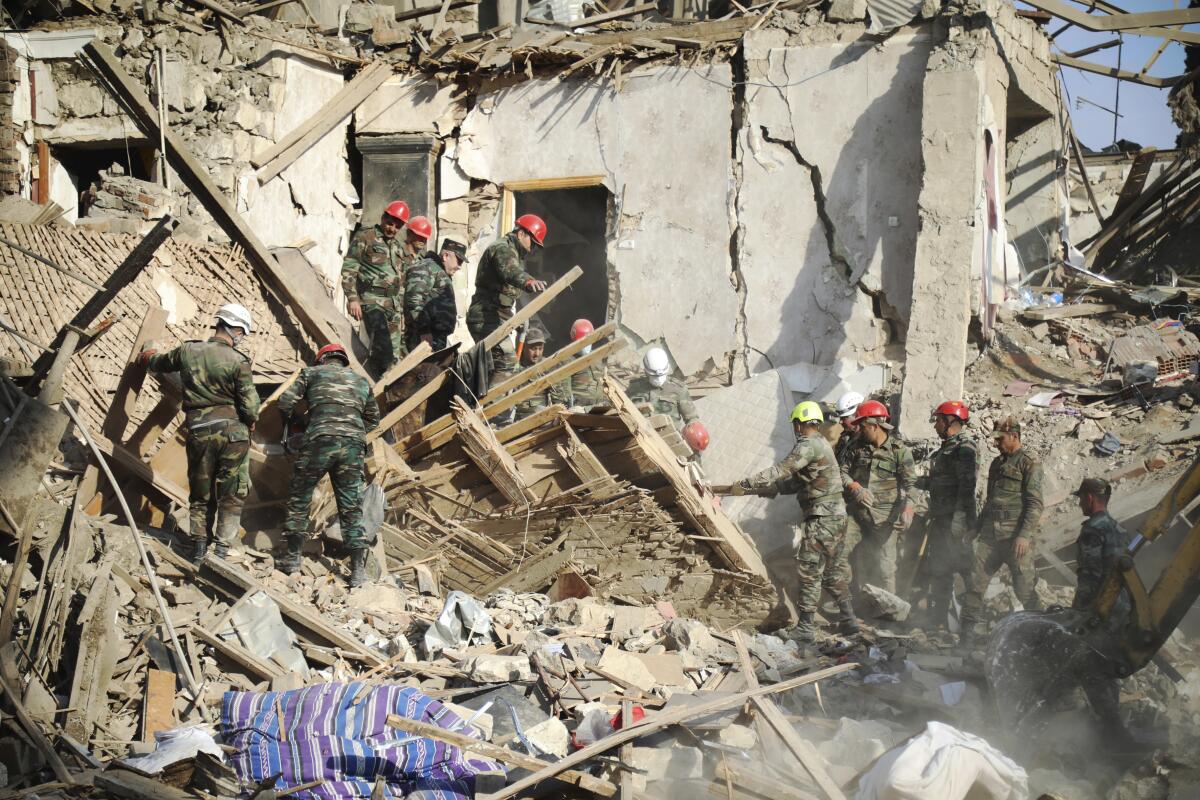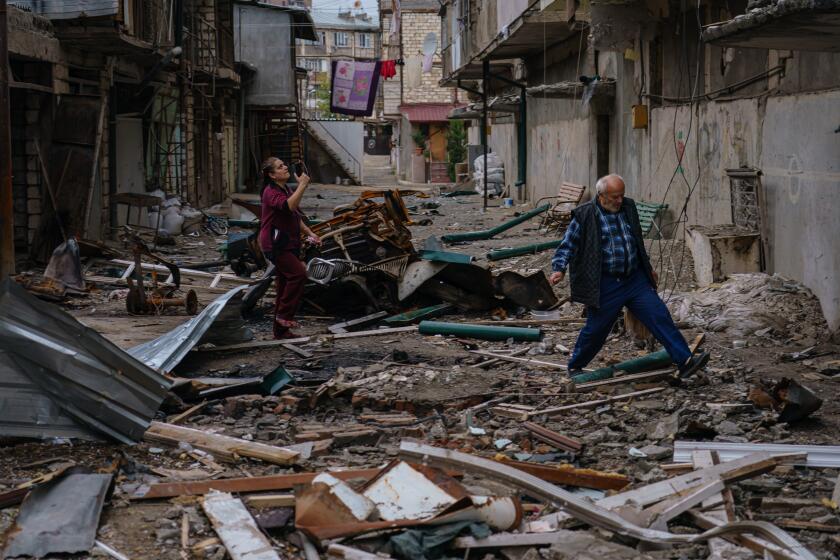Armenia, Azerbaijan report attacks despite cease-fire agreement

- Share via
YEREVAN, Armenia — Armenia and Azerbaijan on Monday accused each other of attacks over the separatist territory of Nagorno-Karabakh despite a cease-fire deal brokered by Russia in an effort to end the worst outbreak of hostilities in the region in decades.
The cease-fire came into effect Saturday but was immediately challenged by claims by both sides of violations that persisted throughout the weekend and continued Monday morning.
Armenian Defense Ministry spokeswoman Shushan Stepanian said Monday that Azerbaijani forces were “intensively shelling the southern front” of the conflict zone. Officials of Nagorno-Karabakh’s separatist, Armenian-backed government said Azerbaijan was directing “large number of forces” to the area of Hadrut, a town in the south of the region, where “large-scale hostilities” were ongoing.
Azerbaijan’s Defense Ministry called the Hadrut allegations “disinformation” and insisted that Azerbaijan was observing the cease-fire. The ministry accused Armenian forces of shelling the Goranboy, Terter and Agdam regions of Azerbaijan that lie around Nagorno-Karabakh.
Armenian military officials also said that Nagorno-Karabakh forces had shot down an Azerbaijani Su-25 warplane, a claim Azerbaijan denied.
The recent bout of fighting between Azerbaijani and Armenian forces started Sept. 27 and has left hundreds of people dead in the biggest escalation of the decades-old conflict over Nagorno-Karabakh since a separatist war there ended in 1994. The region lies in Azerbaijan but has been under control of ethnic Armenian forces backed by Armenia.
The hostilities raging in Nagorno-Karabakh lie at the heart of a decades-long fight that began during the chaotic breakup of the Soviet Union.
The foreign ministers of Armenia and Azerbaijan signed a truce in Moscow after a series of calls by Russian President Vladimir Putin with Azerbaijani President Ilham Aliyev and Armenian Prime Minister Nikol Pashinian.
The cease-fire took effect at noon Saturday after talks in Moscow, which were sponsored by Russian Foreign Minister Sergei Lavrov. The deal stipulated that the cease-fire should pave the way for talks on settling the conflict.
If the truce had held, it would have marked a major diplomatic coup for Russia, which has a security pact with Armenia but has also cultivated warm ties with Azerbaijan.
Both Armenia and Azerbaijan on Monday reiterated their commitment to the cease-fire deal and accused each other of violating it.
Residents of Stepanakert, Nagorno-Karabakh’s capital, which came under intense shelling last week, told the Associated Press on Monday that it didn’t feel like a truce to them.
“We do not feel the cease-fire at all. We do not get out from here to our flats,” said Larisa Azeryan, who has been staying in a shelter in the basement of an apartment building. “We all stay here, we eat here, sleep here. The whole day is spent here in the basement.”
More to Read
Sign up for Essential California
The most important California stories and recommendations in your inbox every morning.
You may occasionally receive promotional content from the Los Angeles Times.










